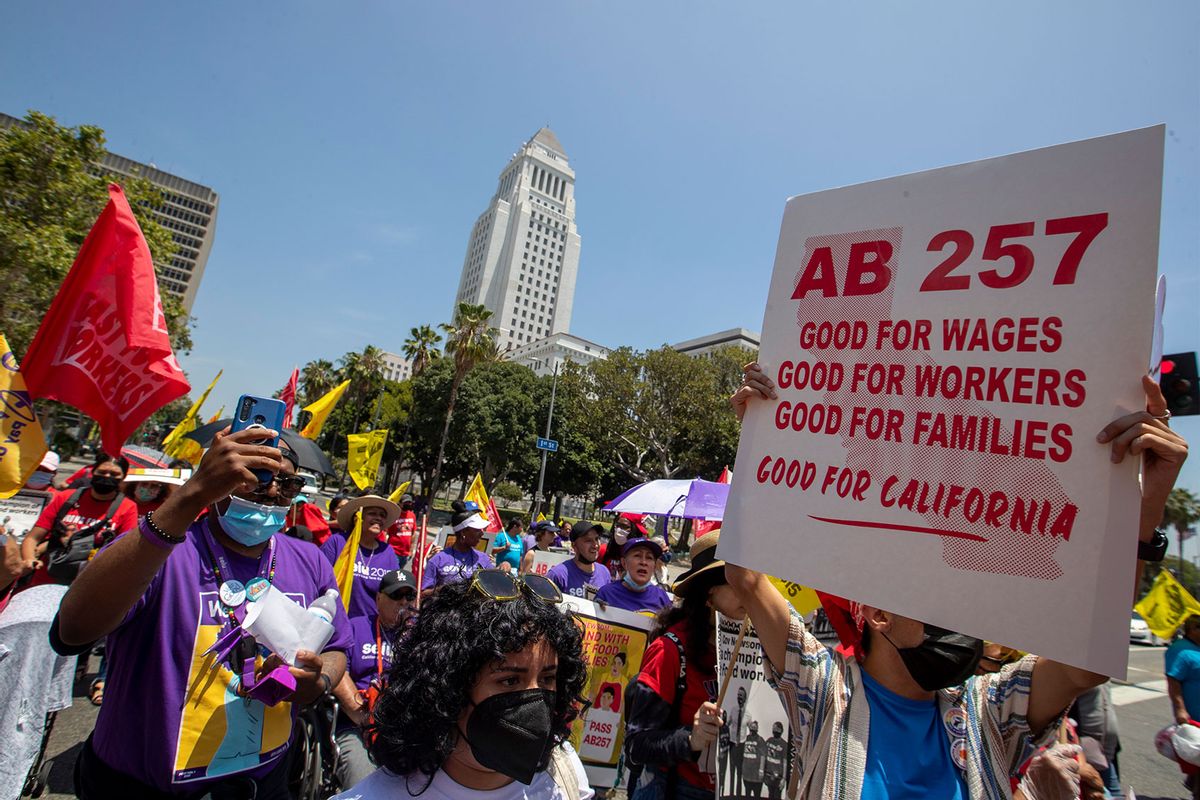For all of his many, many, egregiously unforgivable faults, Henry Ford had it right in paying his workers above average wages. He seems like the only capitalist in history to understand the concept.
When you pay your employees enough that they can afford to buy the products they make, they actually buy those products. Surprised Pikachu Face
I’m all for raising the minimum wage. Even including because I believe that increasing pay for the lowest wage workers boosts the economy.
But this went into effect in April, and they’ve added 11k jobs since then, which accounts for 1.5% of the total fastfood jobs…during a growing economy.
This isn’t some evidence that raising minimum wage increases job growth, but a good data point that it can not hurt it.
Confirmation bias is a hell of a drug, always be mindful of it.
Who would’ve thought if you paid ppl they’d actually work
And if they have money they might spend it on things like fast food, that generates a need for more workers. Who’d have thought?!
What really baffles me here is that in essence, what happened is exactly what free market economics would have predicted. If you can’t find people for low paying jobs, you increase wages and will get more workers. That’s literally economics 101, like, the first or second page in an economics book.
You see, it’s an economic apocalypse!
tries to hide all contrary evidence
Awesome news.
This feels like bad data to me. Don’t get me wrong, I support it. It’s just that if you’re going to determine if the raise in wages “took” jobs, it’s not whether there was a gain at all but rather how California fares compared to other states, right?
That is, if restaurants went on a massive hiring frenzy country-wide due to an increase in fast food consumption everywhere, but other states had a much larger increase, it would suggest though not prove that the increase in wages caused fast food restaurants to hire less actively in California.
I suspect that’s not the case, but I just don’t like passing off incomplete data as proof of something.
deleted by creator



